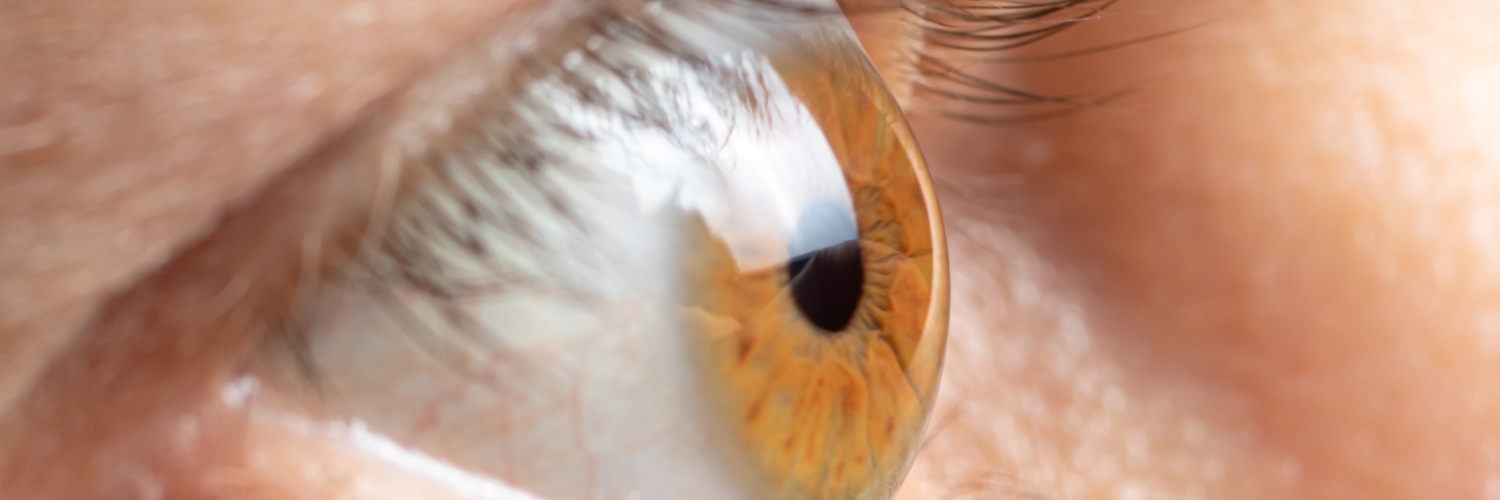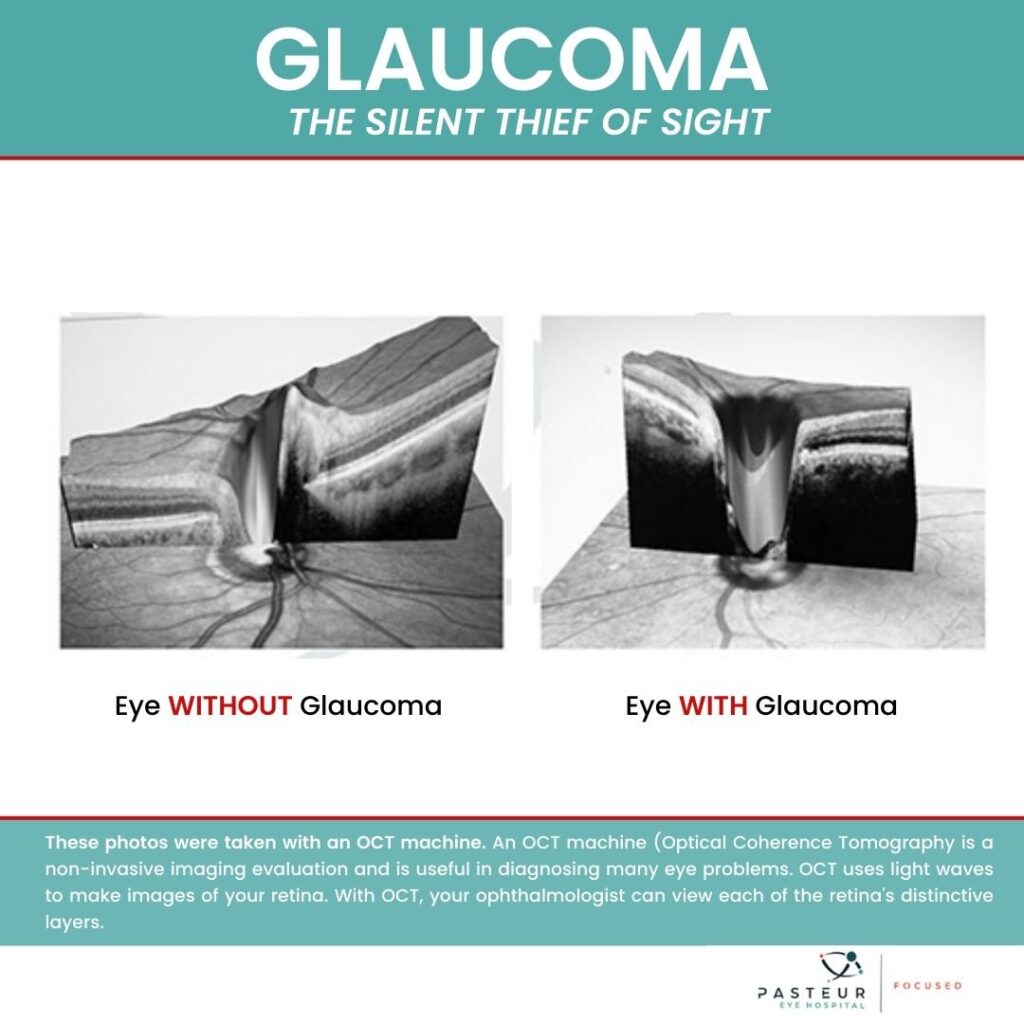Pasteur Eye Hospital
Eye Conditions
Contact Us

Glaucoma is a chronic progressive disease that can cause blindness if not treated in time. This happens when the nerve in the eye cannot handle the pressure in the eye and therefore sustains permanent damage.
Normal pressure is usually between 12-21 mmHg. But a high pressure alone does not necessarily mean that you have Glaucoma. Some people’s nerves can handle a pressure higher than 21mmHg without being damaged, whilst others show damage even if their pressures are normal.
That is why it is important to visit your ophthalmologist on a regular basis. We can measure the pressure and do special tests to determine whether your nerve has any damage. These tests may include Visual Fields (that determines your peripheral vision), and an HRT (that measures the thickness of the retinal nerve fibre layer). These tests are also used to monitor progression of the condition.
There are different types of Glaucoma, each with their own causes, symptoms and treatment modalities. This article concentrates on the type that occurs most commonly, namely Primary Open Angle Glaucoma (POAG).

The damage that has been done to the nerve is permanent and irreversible. But with the correct treatment, one can delay any further visual loss.
The first-line treatment is eyedrops. These should be used on a daily basis to control the pressure. There are different types of drops available and your ophthalmologist will determine which one is best for your eyes. It may be necessary to use more than one type of eyedrop. If the drops alone do not control your pressure adequately, there are other options available (for example laser treatment or surgery). These options will be discussed with you by your ophthalmologist should the need arise.
It is imperative to use the eyedrops exactly as prescribed. Do not miss a dose, and try to use it approximately the same time each day. Using the drops more than prescribed will not decrease the pressure further. Also remember to always use the drops on the day of your follow-up visits, so that your ophthalmologist can see whether it is working. If you see that your drops are almost finished, make sure that you go to your pharmacy in time to refill your prescription.
Unfortunately, there is nothing you can do to prevent this. By visiting your ophthalmologist on a regular basis can help to detect Glaucoma early so that treatment can be started in order to limit further visual loss.
To control Glaucoma successfully, you need to work closely with your ophthalmologist. Your ophthalmologist will monitor your pressure and the function of your nerve on a regular basis and adjust your treatment regime accordingly. Your responsibility is to use your drops as prescribed and to strictly adhere to your follow up appointments.
It is recommended that everyone over the age of 40 years visit an ophthalmologist to screen for Glaucoma.
For any queries, please contact any of our ophthalmologists at Pasteur Eye Hospital.
Pasteur Eye Hospital
Eye Conditions
Contact Us
© Copyright 2022 Pasteur Eye Hospital. All Rights Reserved.
No article or picture may be reproduced\published without the written consent of Pasteur Eye Hospital.
Managed with ❤️ by Cuberoo